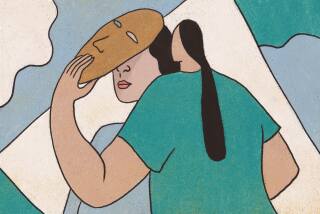An Interview Gone Up in Smoke
- Share via
In colorful details, Jean, a member of one of the Plains Native American tribes, described her daughter’s wedding to a folklorist conducting research for her next book. As agreed, the folklorist wrote up the interview and mailed it back to Jean to check for accuracy.
For convenience, the folklorist had enclosed a self-addressed stamped envelope to facilitate return of the information. But instead of returning corrected copy to the folklorist, Jean sent a note canceling her agreement for the interview and requesting that her information not be released.
What went wrong?
After consulting with the medicine man who performed her daughter’s wedding, Jean discovered that she had broken some spiritual laws and consequently was not permitted to reveal anything about the sacred ceremony. This was because, according to the medicine man, no proper tobacco exchange to seal the agreement had occurred between the folklorist and Jean, and specific wedding details had to be kept secret for one year. Finally, it was the bride and groom’s right--not the bride’s mother’s--to share wedding ceremony information with outsiders.
No matter how experienced the researcher may be, surprises occur when conducting research among people who belong to different ethnic or religious groups. So in spite of her disappointment at not being able to use the information she had gathered, the folklorist felt that the experience provided her with one more example of the complexity of cultural behavior.
*
Folklorist Norine Dresser is the author of “Multicultural Manners” (Wiley, 1996). Contact her through Voices or by e-mail: norined@earthlink.net
More to Read
Sign up for our Book Club newsletter
Get the latest news, events and more from the Los Angeles Times Book Club, and help us get L.A. reading and talking.
You may occasionally receive promotional content from the Los Angeles Times.







